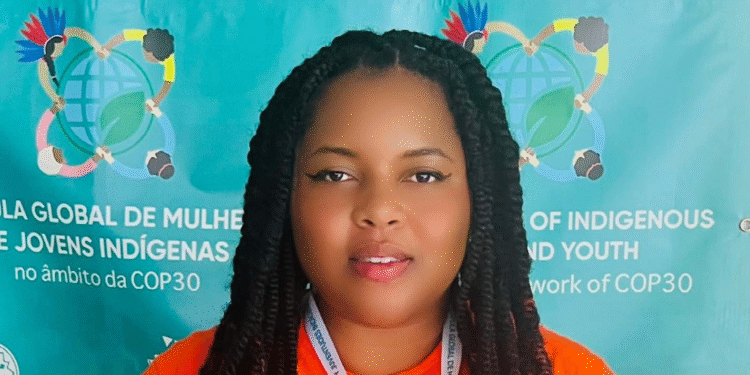Integrated Health Outreach Inc. (IHO) continues its active engagement at COP30, with Director of Operations, Britney McDonald, participating in the Indigenous Peoples and Women’s Summit (Cúpua Global de Mulheres e Jovens Indígenas no âmbito da COP30) held on November 12th and 13th in Belém, Brazil. The Summit brought together women leaders, indigenous communities, grassroots organisations, and high-level representatives from around the world to share lived experiences, strengthen solidarity, and call for meaningful climate justice.
McDonald described the Summit as a profound moment of connection and collective purpose. It provided a unique platform to exchange stories of action, resilience, and innovation, particularly from communities that continue to shoulder the heaviest burdens of climate breakdown. Attending women leaders from across indigenous communities underscored the urgency of centring local knowledge, women’s leadership, and community-driven solutions in all climate negotiations and policies.
“Being in community with women and indigenous community leaders from around the world advocating for climate justice reaffirmed that our struggles are intertwined, and so are our hopes,” McDonald shared. “Whether in the Caribbean or the Amazon, across the world, we are confronting similar threats to our lands, our livelihoods, and our cultures. Spaces like these remind me that we are not alone and that our shared voices are powerful. This summit strengthened our commitment to amplify the calls for accountability, gender equity, and climate-resilient futures.”
The Women’s and Indigenous Youth’s Summit’s conversations highlighted key themes, including land protection, safeguarding biodiversity, preserving ancestral knowledge, gender-responsive adaptation, and the right of communities to meaningfully participate in decision-making processes. These perspectives reinforce IHO’s advocacy at COP30, particularly as Small Island Developing States (SIDS) face escalating climate impacts, from drought, erosion, and loss of natural resources.
A key focus of McDonald’s engagement centred on equitable climate finance. She called for increased, direct, and targeted funding for women-led and indigenous people-led initiatives so that women and communities on the frontlines can design and implement solutions rooted in their rights, knowledge, and priorities. McDonald notes, “True climate justice is not about token representation.” She emphasised, “It demands that women are included in the design, leading, monitoring, and evaluation processes at all stages. We need to have direct access to the resources necessary to protect our communities and planet.”



